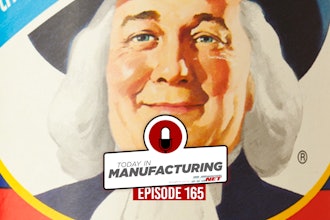Ontario's environment watchdog is worried the recent controversy over so-called eco fees slapped on thousands of household products could jeopardize what he sees as an important program.
Environmental Commissioner Gord Miller issued a special report Tuesday on eco fees, which some retailers started charging on July 1, the same day the HST went into effect, on about 9,000 different products ranging from household cleaners to batteries.
However, unlike a lot of angry consumers, Miller doesn't blame the Liberal government for the backlash and confusion over eco fees charged at the cash registers, but the stores themselves.
"The unfortunate decision by some retailers to invent the concept of 'eco fees' could jeopardize the future of this necessary program," wrote Miller.
The fees go to an industry-run program to properly dispose of, or recycle, hazardous products, but they are charged to manufacturers or importers, not to retailers to consumers.
It was the stores themselves, many of whom are members or 'stewards' in Stewardship Ontario, who decided to charge eco-fees as a separate item on the bill to recoup higher costs passed on by the manufacturers or importers who pay eco fees.
After confusion and complaints about a lack of notice the Liberal government said last week it would cover the $5-million cost to cancel the eco fees for 90 days and rework the plan, a move Miller said he's worried about.
"I am concerned that recent controversy caused by the media and public confusion over the implementation of this plan, as well as the Ministry of the Environment's response to this controversy, jeopardize the future of this important program," said Miller.
"While not perfect the program ... is a good plan that should not be scrapped."
Miler's report, called "Getting it Right, Paying for the Management of Household Hazardous Wastes," was actually planned as part of his annual report but he decided to release it now because of the government's move to revamp the recycling plan in three months.
"These (retail) eco fees created widespread confusion based on the misconception that a recycling tax was being applied," he wrote.
The use and disposal of hazardous materials carry an unavoidable cost, warned Miller.
"Ontarians ultimately pay the cost of this disposal, whether through a taxpayer-funded municipal recycling program, the mark-up of product prices to fund a steward-managed program, reduced landfill space or a degraded environment caused by unsafe disposal."
The environmental commissioner said the program is "a step in the right direction," but he would like to see improvements that would encourage manufacturers to seek out more environmentally friendly materials and packaging for their products.
Uniform steward fees across all producers provide no incentive to make improvements, said Miller.
"Unfortunately, the fees currently charged to stewards do not take into account differences in the specific costs of managing the waste created by an individual producer's products," he said.
"The Ministry of the Environment itself points out there is no direct financial incentives to improve product design such as designing a product that is easier and cheaper to recycle."
Miller also complained the program goal is to collect 68 per cent of hazardous materials by the end of five years, which means almost one-third of hazardous waste generated in Ontario at that time will still be going to landfill, with the disposal costs born by the taxpayer.






















